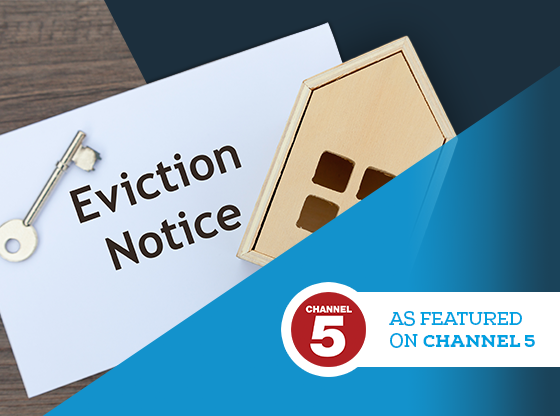A tenancy deposit scheme safeguards tenancy deposits paid in connection with shorthold tenancies. Landlords commonly require tenants to pay a deposit, as security for any damage that the tenant may do to the property. Chapter 4 of the Housing Act 2004 sets out the framework for tenancy deposits. The core purpose of Chapter 4 of the Act is to provide security to tenants and any person who pays a tenancy deposit on behalf of tenants since in some cases landlords have failed to return the tenant’s deposits at the end of tenancies in circumstances when they have no right to retain it.
The Act requires, by s.213, that any tenancy deposit paid to a person in connection with a shorthold tenancy must be protected with an authorised scheme and prescribed information (“PI”) served on the tenant and any “relevant person” within 30 days of the tenancy deposit having been paid. The Act defines the relevant person as being any person who paid the tenancy deposit on behalf of the tenant. At ss.214 and 215, the Act provides for proceedings that a tenant may take if the landlord fails to comply with the requirements of the Act, and for sanctions for non-compliance.
There are two sanctions for failure to comply with s.213, they are:
- No section 21 notice can be served, and
- The tenant or relevant person may claim 1-3 times the value of the tenancy deposit.
How does a court decide on the amount to award an applicant of an s.214(4) claim?
In the case Okadigbo & Anor v Chan & Anor [2014] EWHC 4729 (QB) (23 October 2014) an assured shorthold tenancy was granted by landlord’s Dr Chan and Dr G Chan to the tenants Mr Michael Ogadigbo and Ms Teri Karuki which commenced on 01 August 2012.
The landlords issued a possession claim against the tenants for non-payment of rent and also claimed a judgement for the outstanding rent arrears. The tenants made a counterclaim under s.214(4) of the Act for the landlord’s failure to protect their tenancy deposit with an authorised scheme and serve the PI within the statutory time limit. However, eventually landlords protected the tenancy deposit and served the PI upon the tenants, albeit out of time.
Section 214(4) provides that where there has been a failure to comply with the requirements of s.213:
“The court must order the landlord to pay to the applicant a sum of money, not less than the amount of the deposit and not more than three times the amount of the deposit within the period of 14 days beginning with the date of the making of the order.”
Her Honour Judge Carr stated:
“Finally, the Defendant seeks a penalty pursuant to Sections 213 to 215 of the Housing Act 2004. Section 214(4) provides that in the event of a breach, and here the breach is admitted, I must award the Defendant a sum of money not less than the amount of the deposit and not more than three times the deposit. The Defendant contends for the maximum sum which would be three times £1,520, a sum of £4,560. The Claimant contends for one month’s rent in the sum of £1,520. I find that the Claimants are not experienced landlords, that this is the first time that they had let out any property and that they were letting out their home. That they quite properly put the matter in the hands of professional managing agents who let them down by not complying with the terms of the Act. I find this case to be at the lowest end of the scale of culpability for non-compliance. And for those reasons I award the sum of £1,520.”
The tenants appealed the judgement of HHJ Carr and Mr Justice Males, upholding the judgement of HHJ Carr made what I regard as a paramount statement:
“In my judgment, however, the judge was entitled to regard the question of culpability as the most relevant factor in determining what order to make and was entitled to find that the culpability in this case fell at the lowest end of the scale for the reasons which she gave. It is not as if the breach was uncorrected and therefore, although the appellants were lacking the protection for a period of some months, in the end matters were put right.”
The judgement of Mr Justice Males extends the scope of mitigating circumstances for landlords where there is a breach of s.213. It is not only in cases where a landlord relied on an agent to protect a tenancy deposit that a landlord’s culpability may be found at the lowest end of the scale of culpability.
Landlords who can prove they are inexperienced landlords and put the breach right by protecting the tenancy deposit and serving the PI, albeit it late, will be able to mitigate their liability thereby reducing the amount a tenant could be entitled to under s.214(4).
It should be noted, the above is only a partial defence to a claim under s.214(4).
In some cases, tenants claim not only under s.214(4) but also s.214(3)(a) which provides that a court may order for the tenancy deposit to be returned. Such an order, however, would only be appropriate if the tenant was no longer in occupation of premises or there is no ground for the landlord to retain the tenancy deposit (i.e. for damages or rent arrears).
Though obvious, a landlord will be able to defend a claim under s.214 on the basis the landlord is entitled to a set-off against the sum claimed by the tenant, such as for damages to the property or rent arrears. Such a defence should be used in conjunction with the partial defence set out above, should it apply, that the landlord’s culpability is at the lowest end of the scale of culpability.
Can an agent be liable under s.214(4)?
Many landlords use a full management service from letting agents which typically includes the agent protecting the tenancy deposit and serving the tenant with the prescribed information.
The Act refers to, under s.213, the landlord having to protect the tenancy deposit and provide the PI to the tenants and s.214(4) refers to a landlord having to pay 1-3 times the value of a tenancy deposit where there has been a breach of the provisions in s.213.
However, the word “landlord” for the purpose of Chapter 4 of the Act is defined as including any person acting on behalf of the actual landlord as set out in s.212(9).
In the case, Draycott & Anor v Hannells Letting Ltd (t/a Hannells Letting Agents) [2010] EWHC 217 (QB) (12 February 2010) a letting agent for the landlord failed to protect the tenancy deposit and serve the PI within the statutory time limit. The tenant issued a claim against the letting agent under s.214(4).
The principal dispute in this appeal did not relate to the definition of “landlord”, but on this point, Mr Justice Tugendhat stated:
“..s.214(4) is penal …The penalty should be imposed on a person who is responsible for the failure to comply with s.213. In the present case that is the Defendant, and not the actual landlord…”
It is unambiguous in the Act that a person acting on a landlord behalf, such as a letting agent, can be liable under s.214(4) for any breach of the provisions of s.213 where the agent was responsible for complying with such provisions.
It is a complete defence for a landlord who finds their tenant claiming against them under s.214(4) that such a claim must be made against the agent who failed to comply with s.213. Of course, any landlord relying on such defence will need to be able to provide evidence that the agent was responsible for complying with the provisions of s.213.
There is much more to consider where a claim under s.214(4) is made for multiple breaches of s.213 where a tenancy is renewed and the tenancy deposit scheme requirements are not complied with. However, this is a matter addressed in our other article.
Mr Sasha Charles
Our top read Blogs:
Covid 19 and Gas Safety Checks
Complete ban on evictions and additional protection for landlords and renters











